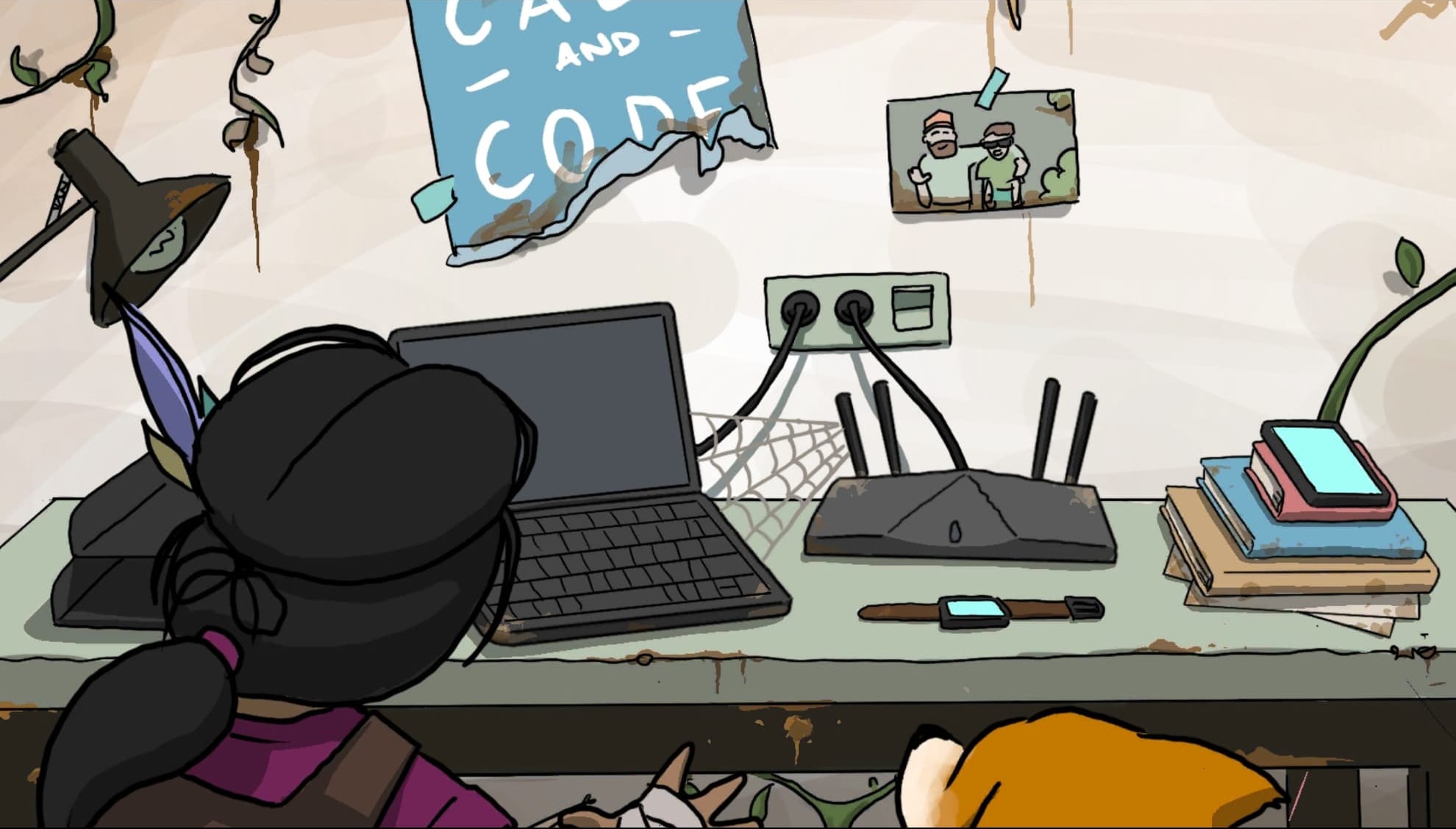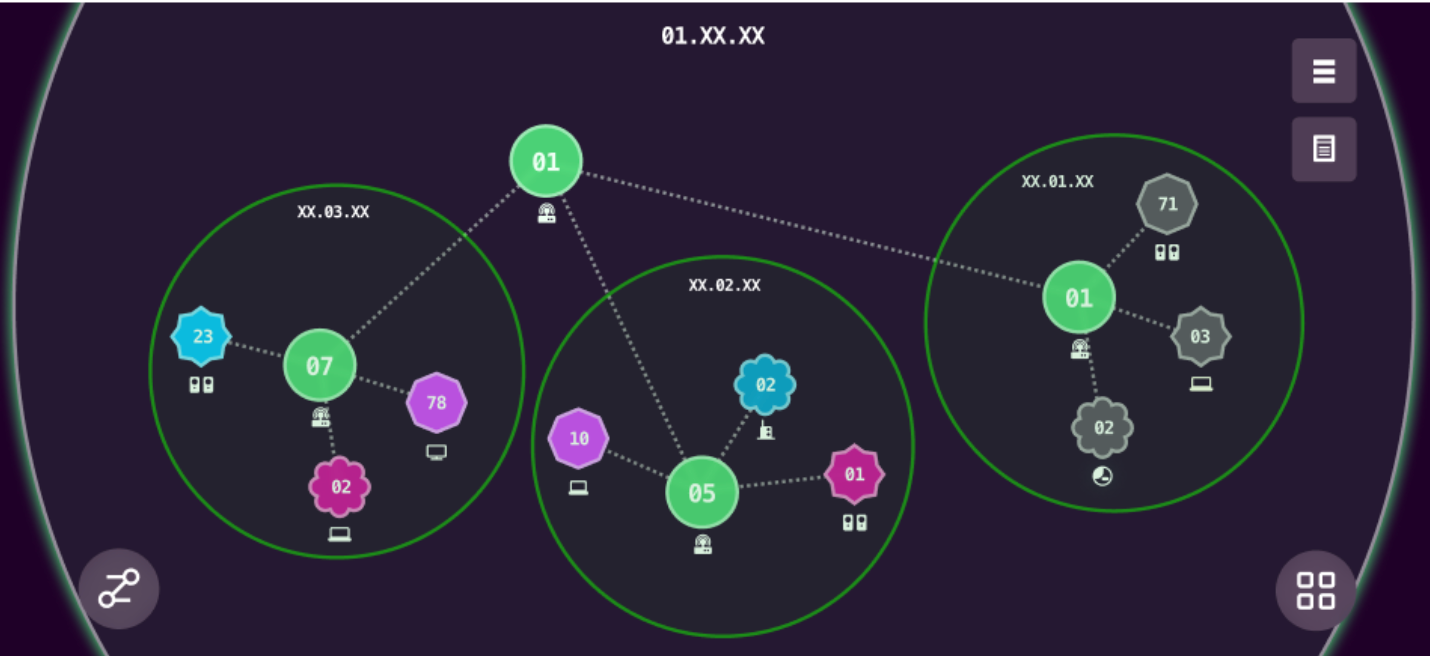When We Forgot the Internet

A Story about Internet Resilience and Rediscovery

It happened without warning. A corrupted software update — or perhaps a deliberate malware — swept through the neural implants worn by every adult on Earth, killing them in seconds. Lives extinguished mid-thought, an entire generation wiped out. No explosion, no chaos, just suddenly: trains stopped, meetings froze, and classrooms stood teachless. The systems they built remained intact — power grids, networks, entire cities — but the knowledge to run them vanished. The Internet simply stalled, abandoned by the minds that once made it work.
Not broken, but forgotten, the Internet’s architecture persisted, humming softly in the background, lights still blinking in darkened server rooms. But without the adults, there was no one left who understood how it all fit together. The children who remained, unaffected by the neural implants, inherited something they couldn’t decipher. At first, they explored. They touched screens, flipped switches, asked questions. But without answers, their curiosity dimmed. And so the question lingered: Can something so vast be recovered when no one remembers how to bring it back to life?
Among the ruins lives a girl named Nara. She has no parents — the implants took them, like they took everyone who once understood how things worked. She doesn’t remember the Internet; no one her age truly does. Stories of a world where everything was connected — machines, people, places — have become fading memories and fractured myths. Most have stopped asking questions. But Nara hasn’t. She still wonders what was lost… and whether it can ever be found again.

One morning, while wandering through the remains of the city with her dog, Beegee, Nara stumbles upon the wreckage of what was once an office. Beneath the rubble, she finds a laptop — dusty, but not dead. It flickers. It waits.

And so begins IPGO — a narrative puzzle app disguised as a learning platform. Players step into Nara’s shoes, navigating a post-apocalyptic world where global networks have collapsed and the adults who built them are long gone. In their place is a quiet world of faint digital echoes. But the Internet isn’t truly dead — it’s dormant. And it’s calling out to be revived.
The laptop she finds once belonged to Peter Lyons, a long-gone network engineer who foresaw the collapse and left behind a contingency plan — not for himself, but for the generation too young to know what they’d lost. His blog, offline, but still partially intact, hints at pieces of digital knowledge scattered across old routers and corrupted devices. If found and reconnected, these fragments could relight the network’s fibre.

The network, it turns out, was designed to recover. The system was modular. Redundant. Flexible. Adaptable through the events of time.
To revive it, Nara must learn what the world has forgotten: how to assign addresses, rebuild routing tables, and reconnect networks. What begins as a scavenger hunt becomes something more: a ritual of repair. The puzzles Nara solves are not just tasks — they’re acts of stewardship. Restoring static routes. Unlocking gateway routers. Translating corrupted IP prefixes into connection.
And then, impossibly, the silence breaks. There are others.
A message reaches Carlos. Then Haru. Then Budi — a semi-functioning AI still maintaining a village’s abandoned network. Each exchange unlocks a route, a clue, a fragment of connection. Every “ping” is a whisper of life. Every delivered packet, a quiet affirmation: it’s still possible to reach one another.
IPGO teaches not by instruction, but through immersion. Players learn the Internet’s hidden logic — addresses, routes, protocols — by helping Nara rebuild it. The app turns technical ideas into narrative choices: assigning addresses, restoring links, rerouting through fragile paths. What begins as play becomes understanding.
For many players, it’s the first time they grasp the Internet not as infrastructure, but interdependence.
Originally conceived as a card game to explain IP addressing, IPGO has evolved along two paths. The card game is still actively used at events and workshops, proving to be an engaging and accessible way to spark curiosity in live, in-person settings. In parallel, IPGO was also developed as a digital narrative puzzle — an experimental leap into immersive learning. The app you see today is just a fragment of its original vision. Due to limited resources, its scope was scaled back, and many of its more ambitious features were kept in reserve. Still, it stands as a compelling prototype: limited in scope, modest in polish, but rich in intent. With learning design at its core, IPGO bridges the technical and the human, offering both an educational tool and a prompt for deeper conversation. At its heart, IPGO isn’t just about networks. It’s about Nara — and the human need to reach out, to rebuild, to remember. Through her journey, we’re reminded that resilience doesn’t mean never breaking. It means finding a way to reconnect.
